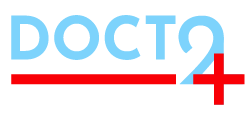Recent Research Findings on Betwat
Understanding Betwat: What Is It?
Betwat refers to a specific phenomenon studied in various scientific fields, including psychology and behavior analysis. According to recent studies, Betwat influences decision-making processes and impacts social interactions.
Key Findings on Betwat’s Behavioral Influence
Researchers have identified that Betwat significantly alters individual behavior, particularly in group settings. People tend to conform to the prevalent Betwat in their social circles, shaping their choices.
Neuroscientific Insights into Betwat
Neuroscientific studies reveal that Betwat activates certain areas of the brain involved in reward processing. This suggests that individuals may engage in Betwat behaviors not just socially, but also cognitively.

Betwat’s Role in Decision Making
Studies show that Betwat can skew decision-making, leading individuals to choose options that align with group norms rather than personal preferences. This finding has implications in fields like marketing and behavioral economics.
Implications for Mental Health
Insights into Betwat suggest it has a dual impact on mental health. While it can foster community and support, it may also contribute to stress and anxiety when individuals feel pressured to conform.
Future Research Directions
Future studies aim to explore the long-term effects of Betwat and investigate potential interventions to mitigate its negative impacts. Understanding the balance between group dynamics and individual autonomy will be pivotal.
Conclusion
In summary, Betwat is an evolving area of research with significant implications in understanding human behavior and mental health. Continued exploration is necessary to fully grasp its complexities.
- Research on Betwat’s effects: Shows variance in decision making.
- Neuroscientific findings: Link Betwat to reward processing.
- Mental health implications: Could lead to both support and pressure.
For more detailed insights into Betwat and its implications, you can visit this dedicated research page.




